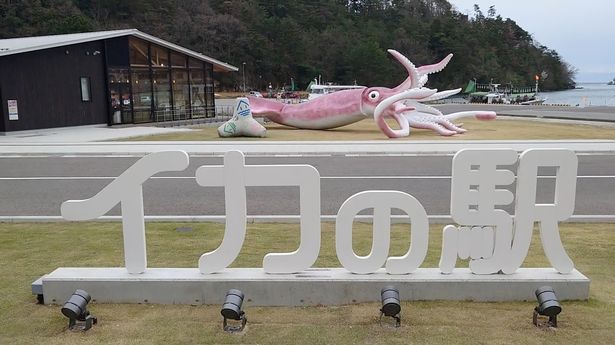A Japanese town has used part of its Covid-19 relief funds to build a statue of a giant pink squid in the hope of boosting tourism after the coronavirus pandemic.
The sea creature – which is four metres high and is nine metres long – popped up in Noto, a seaside town in the Ishikawa Prefecture on Japan’s central-west coast.
Locals were left baffled, with some people questioning whether the relief money should have been used in a different way.
The town, where flying squid is a typical local dish, reportedly used 25 million yen – the equivalent of about £165,000 – out of a total of 800 million yen (£5.2 million) of emergency funding received by the central government to build the statue.

(Image: via REUTERS)
Total construction costs were around 30 million yen (£197,000), domestic media reported.
It comes as Japan battles another surge in coronavirus cases and, although the city has had few infections, it has been impacted by a drop in visitors.
The giant squid statue is said to be part of a programme by the local government to boost the number of tourists amid the pandemic, according to local media.
It is believed construction of the pink cephalopod began in October 2020 and the finished statue was moved to its current home in March of this year.
Squid is a local delicacy in Noto and building the statue was part of a “long-term strategy” to raise awareness about the town’s fishing industry and increase tourism, a local government official said.
Some people shared their disappointment on social media, arguing that the money should have been spent differently, with a person writing: “No matter how you look at it, this is wrong. They have to return that money.”
A local told Chunichi Shimbun newspaper that while the statue may actually boost tourism in the long run, the money could have been used to provide “urgent support” – for example, for medical staff and long-term care facilities.
Since the beginning of the pandemic, Japan recorded 612,360 cases and 10,470 Covid-related deaths.


